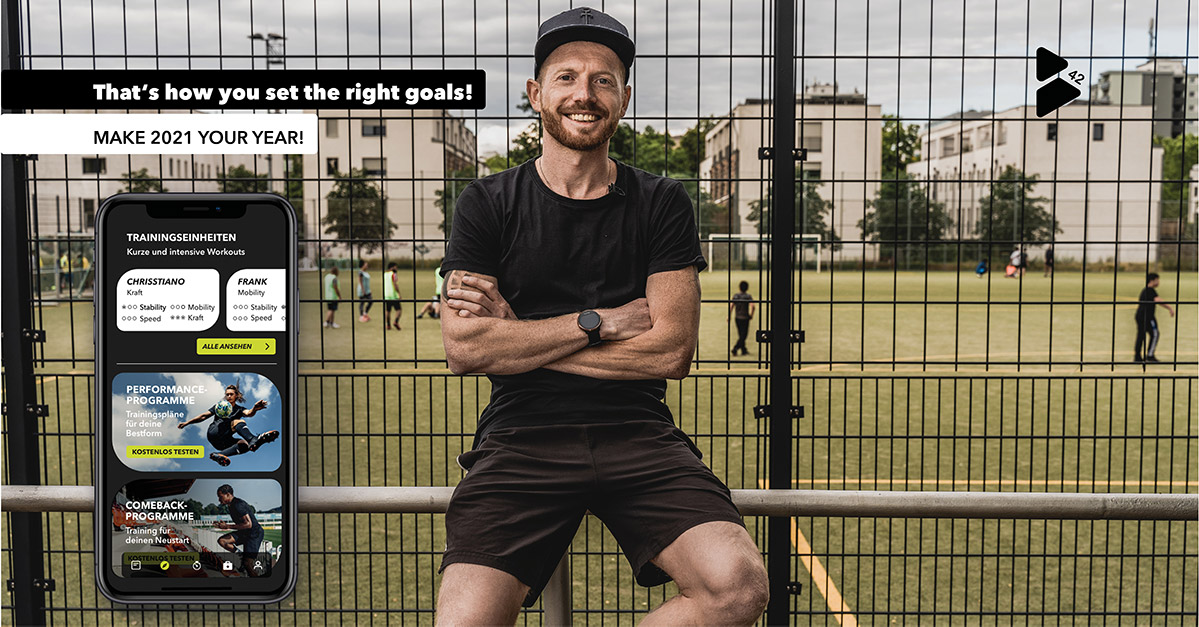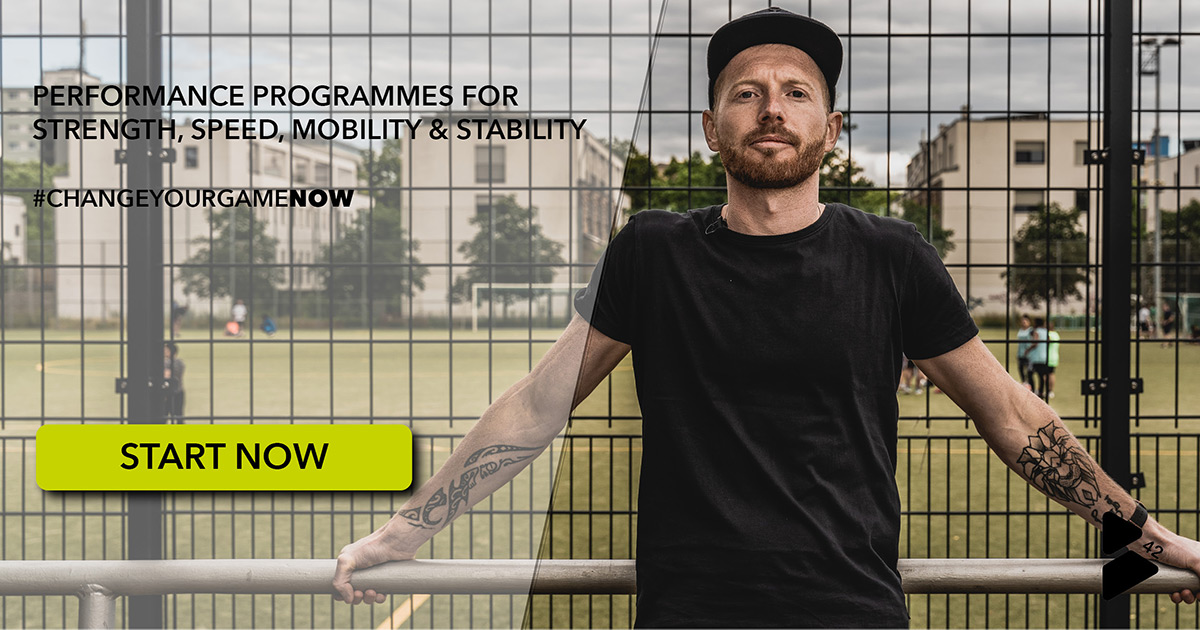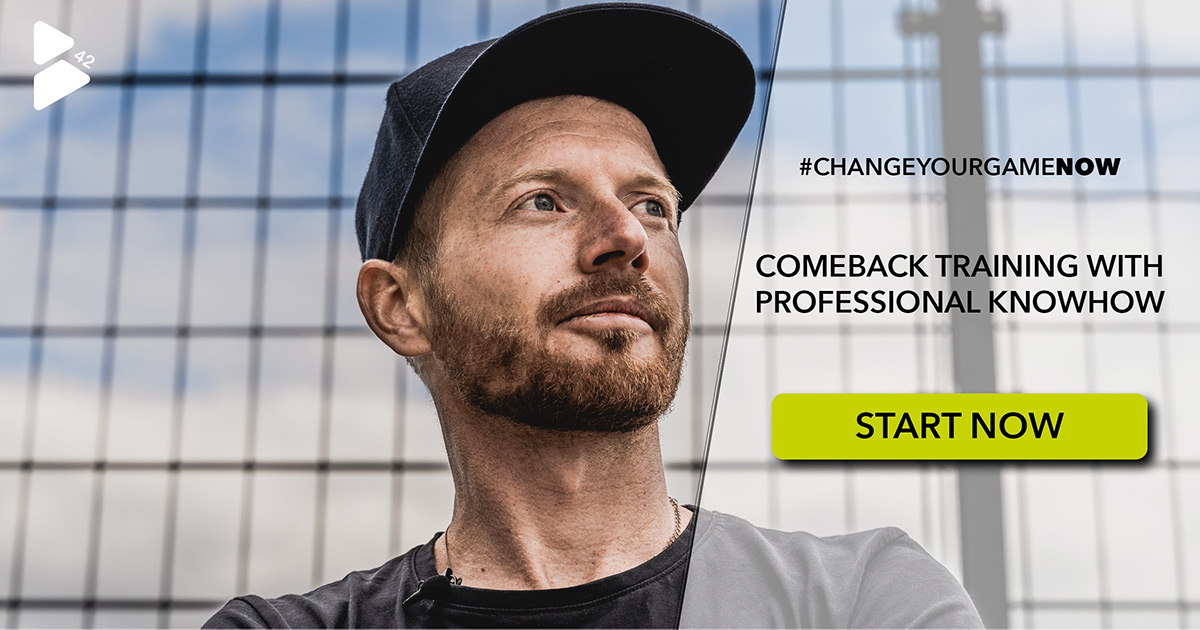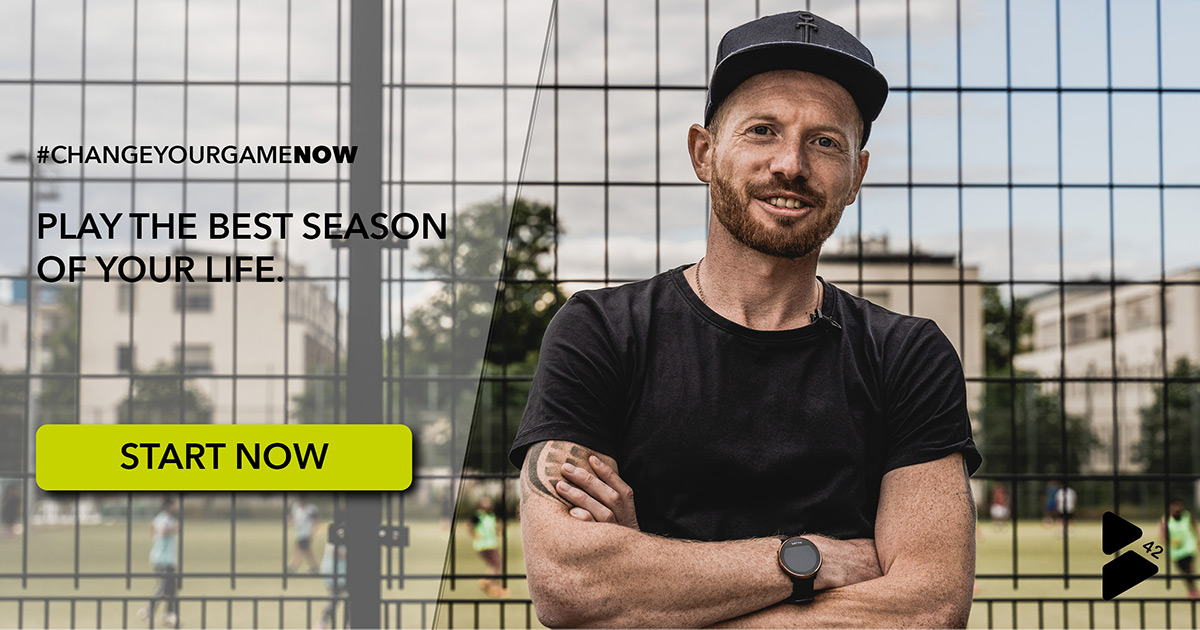A guest article by our expert Patrick Thiele (motivational coach for professional players and athletes) on setting the right goals in football to make 2021 your year.
How many times have you set goals and not achieved them in the end?
We all know this process: We are motivated at the beginning of the new year, set new goals and 12 months later we realise that we have not reached where we wanted to go.
But what is the reason? Are you setting the wrong goals?
Are your goals simply unrealistic or do you lack the right plan to achieve your goals?
In most cases, it's a combination of all of these.
In the following article, you will learn how you can not only set the right goals for yourself in the future, but also achieve them much more reliably.
Set the right goals for the new year
"Not having a goal creates a problem: You can spend your whole life, running up and down the field, without ever hitting the goal." (Bill Copeland)
If you want to improve consistently, you need goals. But what goals? And how do you best formulate these goals?
You have probably heard of SMART goals. Your goals should be specific, measurable, attractive, realistic and timed.
"I want to become a better footballer" is not a suitable goal, but "I will have scored at least 15 goals by the last game of the season!
Sounds quite simple, doesn't it? You just make sure that your goal is clearly formulated and that you can measure it somehow to see at the end whether you have achieved it or not.
So far so good. But how do you determine the right goal for you and how do you manage to work on your goals with motivation throughout the year?
Formulating your goals "SMART" is at the very end of the process, not at the beginning. For many, however, this is often the only step in goal setting, which always leads to disappointment and frustration.
So let's start at the beginning.
What do you really want to achieve?
It's not about "What should you achieve?" or "What do you need to achieve according to your coach, your parents or your teammates?" but "What do you really want to achieve?
The foundation to successfully mastering your goals lies in pursuing a goal that is truly chosen by you. "Too big, unrealistic...", what others think about your goal doesn't matter.
What matters is that you really want to achieve it.
What do you need to do to reach your goal?
Once you know your goal, you should think about what you need to do to achieve it.
What are the steps you need to take to reach your goal? Be aware of the intermediate steps that are necessary to reach your goal.
Only then will you be able to see the whole path ahead of you and answer the following question: "Am I willing to make the necessary sacrifices for my goal?
Every goal requires a sacrifice
No matter what you want to achieve, you will have to sacrifice something else. The bigger your goal, the bigger the sacrifice tends to be.
You may have to sacrifice time with friends, miss out on parties or adjust your diet in the future. Every goal requires sacrifice and you should be aware of this before you even start.
Often we forget to take this very step and then realise over time that we are not ready to give up certain things for our goal.
Giving up always sounds negative at first.
The good news for you, however, is that if you really pursue your own goals, you are usually willing to make sacrifices and don't let them stop you.
Before you start planning your goals, there is one important question you should ask yourself:
"Are you able to enjoy the journey to your destination?
Depending on what you want to achieve, it may take a little longer to get there. If you are permanently dissatisfied on the way to your goal because it takes too long, it will be a long, hard road.
So learn to enjoy the process, or as Confucius said so well: "The way is the goal."
Here is an overview of all the important questions so that in the future you can make sure you have always chosen the right goals:
Do I really want to achieve this goal?
What do I have to do for this goal?
Am I willing to make the sacrifices for this goal?
Am I able to enjoy the path to my goal?
How to plan your goals properly
After you have clarified your general goal, the next step is to develop a plan that is as precise as possible.
You know your goal, you know where you stand right now and you can determine exactly which individual steps you need to take to reliably reach your goal.
In principle, your goal setting works like Google Maps. As soon as the destination and location are known, you are shown the fastest route, except that you have to plan the route yourself.
Set intermediate goals for your big goal in 2021
Intermediate goals are an important step in this process. Especially with big goals, motivation is quickly lost over time if you have the feeling that you are not making any progress.
Ideally, you know exactly what you have to achieve every day, every week and every month in order to achieve your big goal in the end.
This way, you always know exactly what you have to do, and you always have a sense of achievement.
Every intermediate goal you reach gives you a good feeling. You feel your progress, which in turn motivates you to continue.
So always try to divide your goal into as many small goals as possible. This will make it much easier for you.
What are the different types of goals?
Before you finally start writing down your goals, you should check whether you have found goals for all of the following categories:
Outcome goals
Performance goals
Action goals
Outcome goals, as the name suggests, are linked to a specific outcome.
For example, a certain number of wins, goals scored or games without conceding a goal. A large part of all our goals always focus on certain results, but unfortunately you do not always have this result 100% in your own hands and even if you do everything for it, it is possible that you will miss your goal in the end.
Your coach's decisions can also mean that you don't play all the games in the season and your goal is in jeopardy without you being directly responsible for it.
For this reason, it is important that your goals are always focused on specific achievements and actions.
For example, you could set a goal to increase your sprint speed or improve your jumping power. To achieve this, you might need to work on it 2-3 times a week in the future.
Your performance goals automatically lead to action goals. The advantage of these goals is that you have 100% control over them.
Even though performance and action goals are only a means to an end and ultimately help you to achieve your result goals, you should not do without them.
You will become a better player and get closer to your big goal.
Should you reach for the stars when setting goals?
But how big should your goal actually be? In the best case, a little too big.
That is, the maximum you want to achieve should (as of today) still intimidate you a little. However, to avoid doubting your goal, you can simply set a maximum, an optimum and a minimum goal.
The minimum goal is self-explanatory. What is the minimum you want to achieve? In most cases, this goal is quite close.
The optimum goal is the point at which you would be really happy with yourself. You could look in the mirror and be proud of yourself.
The maximum goal takes you to a whole new level. You are probably not 100% sure yet that you will really reach this goal, but you already feel inside yourself: "It could be possible!"
Just be aware that you are always capable of more than you can imagine now.
Your maximum goal simply ensures that you aim a little higher and thus reach your optimum goal in the end.
SMART goals and how to set them
Now that you have gone through the whole process of setting goals for yourself, you can go back to the beginning, because now you have the right foundation to set SMART goals.
So take each goal and adjust the wording.
For example, a SMART goal would be: "I will improve my 10km running performance by 5 minutes by 06/30/2021".
Here is a short overview for you to use the SMART method correctly:
S...Specific: Your goal should be as clear as possible.
M...measurable: You can measure your progress with times, weights or similar.
A...attractive: Your goal should motivate you. You want to achieve it.
R...realistic: It should be possible to achieve your goal within the set time frame.
T...time-bound: You have a clear end date by which you want to have achieved your goal.
You may have realised by now that setting the right goal is a bit more extensive than you had previously thought. But this process will pay off.
Every minute you invest in goal setting at the beginning will save you days or weeks, if not years, of running haphazardly in all directions.
"A goal you set right, you're already halfway there." (Zig Ziglar)
How not to lose sight of your goals
Finally, there are two important components missing to make your goal setting complete.
1. Write down all your goals.
2. Place your goals in a place where you will see them again and again.
If you are always thinking about what you want to achieve, you will quickly lose focus.
It's good to know what your goals are, but it's even better if you actually write them down. Before that, your goal is just a thought in your head. But once you write it down, it becomes tangible and real.
Which brings us to the second point. The purpose of your goals is not to think about them once and then put them aside. As the saying goes, "Out of sight, out of mind."
Your goals will be forgotten very quickly if you don't keep reminding yourself of them.
So take a few minutes regularly to remind yourself of your goals or place your goals in your home where you will see them every day, such as on the bathroom mirror or on the fridge.
This way you will always have your goals in front of you.
The right goals are much more than just something you want to achieve.
They keep you on the ball.
They motivate you.
They make you happy.
They make you better.
You can find more articles on the topic of mental training in football here:
How to increase your self-confidence in football
How to stay motivated in the long term
Mental training in football - part of your fitness
To really progress in football, you need to train your mind and body. That's exactly what our app is perfect for. Download the B42 Football App now and start on the path to your best form on the pitch:
Download the B42 Football App from the AppStore.






